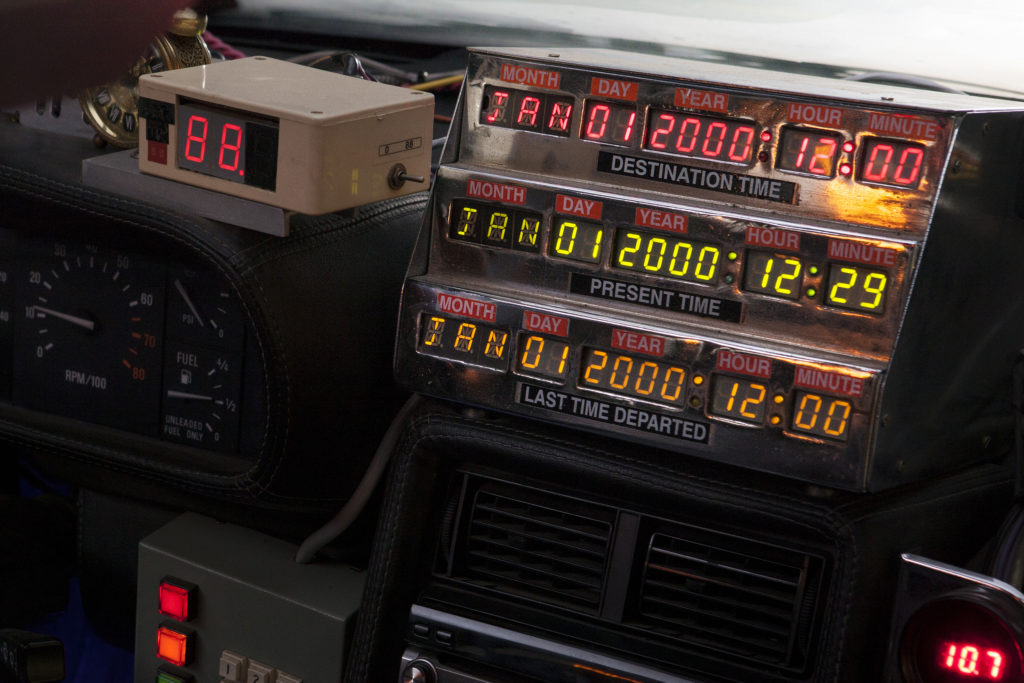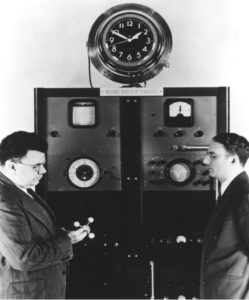We’re going back to the future! Well, sort of…
Did you know you’ve got an extra second up your sleeve this morning? You might not realise it, but the minute beginning at 9:59am AEST today will, officially, last for 61 seconds.
But beyond giving you some extra time for your morning crossword puzzle, or putting you ever so slightly ahead of schedule, why do we bother with leap seconds?
As with many things, it’s a question of time and space:
1) We do it because…
Astronomical time and atomic time don’t see eye to eye. The Earth’s rotation is actually a bit wobbly, which accounts for seasons, solstices and sunburn in summer. But it also means that over time, Coordinated Universal Time (UTC*) – which is kept on a collection of super-accurate atomic clocks – gets a little out of sync with Universal Time (or UT1). UT1 is based on where our planet is situated in relation to the Sun, wobbly spin and all.
Our planet’s official time keepers, aka the International Earth Rotation and Reference Systems Service aka the worst place in the world to be late for work, decreed that every few years we need to add an extra second to our UTC calendar, so that we can stay on track with Earth’s spin.
And that’s what is happening this morning: instead of our clocks counting seconds from 59 to zero, clocks are adjusted to count to 59, then 60, then zero.
2) An atomic clock is…
Ahead of its time, literally. Atomic clocks are regulated by the vibrations on an atomic scale, and are so accurate that they’re used as the primary standards for international time distribution services. But as we’ve explained, they’re so good that they also put us out of whack with Universal Time.
The US Government’s first official atomic clock, built in 1949.
Atomic clocks are important to our everyday way of life. Without them, GPS navigation wouldn’t work, the Internet wouldn’t synchronize, and the position of the planets would not be known with enough accuracy for space probes and landers to be launched and monitored.
There are atomic clocks ticking all around the world. Australia has one in Sydney, at Lindfield, that’s managed by the National Measurement Institute. But there’s also a bunch in Japan, in the US and Europe.
3) Leap seconds can cause trouble with…
A few things. Because leap seconds happen at irregular and ad hoc intervals (anywhere between one and seven years, and often announced only six months in advance) software developed for big pieces of equipment like telescopes and spacecraft can be caught off guard. An example: our pulsar astronomy team use telescopes to predict the arrival of pulses to nano and even micro seconds. If UTC leaps forward a full regular second, and their software isn’t updated, it can result in huge disagreements in the data.
It can have real implications on the ground too. The last leap year in 2012 caused significant disruptions to airlines in Australia, and this time around it could potentially wreak havoc with trading markets, web operations and 60 second microwave meals.
4) It’s happening at…
10am this morning, AEST. That’s midnight for the UTC, but if you’re in Adelaide it will be at 9:30am or 8am if you’re in Perth.
5) You need to do…
Not much. Most connected devices that use network time protocols, like computers, phones and smart watches, will update themselves. But anything you might need to set yourself, like a normal watch or your old kitchen clock, will need to be changed manually. And hey, while you’re at it, you might like to alphebetise your record collection and colour-code your undies drawer.
Or, if you’re really picky, you could just use a quasar to keep time:
*formerly known as Greenwich Mean Time




1st July 2015 at 5:26 pm
Marvellous explanation – thank you. Readers might like to know about a wonderfully written and informative book called The Calendar (by David Ewing Duncan) which explains man’s journey in measuring Time. It’s a gripping historical record and written almost like a who-dun-it to keep up interest. One of the interesting things about time is that hardly anyone cared a serious hoot about it except for the Catholic Church which was utterly obsessed with pinning down an accurate date for Easter. How strange that but for a delusional sect’s obsession over a mythical event we might not have GPS today. What a waterbed life is, the sloshing can take us anywhere!